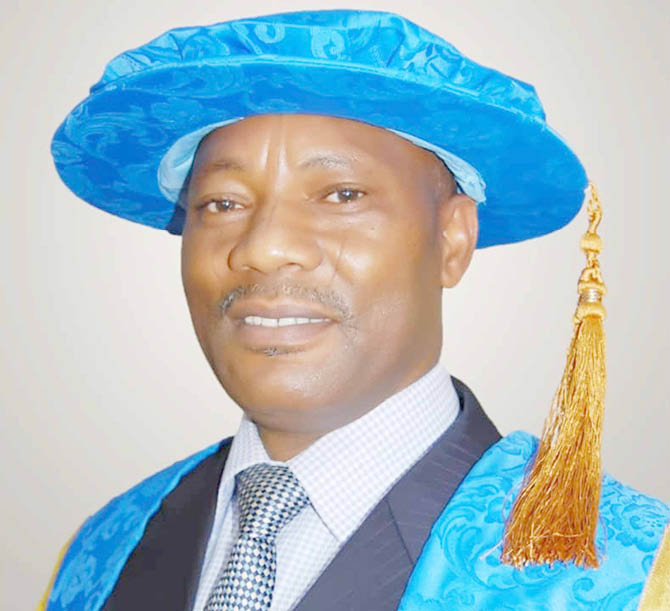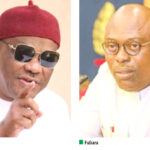The selection of the substantive Vice Chancellor of the University of Jos, Professor Ishaya Tanko, on November 12, has put to an end the hullabaloo on who is to be the next principal academic and administrative officer of the institution.
The journey to get Prof Ishaya appointed took longer than necessary as ideally, it should have been done before April this year when the tenure of his predecessor, Prof. Seddi Sebastian Maimako, expired.
More than 20 professors applied for the VC’s job out of which 19 were shortlisted for interview including the VC-elect.
But fruitless disagreement over the election of the new VC among the stakeholders necessitated a quick appointment of an acting VC, Professor Gray Goziem Ejikeme, to avoid a vacuum, and postponing the election of the substantive VC.
Following the failure to appoint the substantive VC at the stipulated time, however, protests by different groups were held which stalled some academic and non-academic activities including the last second semester examinations in order to control the heightened situation in the university.
There were allegations that class representatives of all the levels of the various departments were mobilised to take part in the protest with placards showing disapproval on the selection of the VC that was not duly elected.
The uncertainty on the election threw lecturers, students and other non-academic staff into confusion.
What was the issue?
People from within and outside the institution were bombarded with different narratives on what was delaying the election of the VC.
Daily Trust investigation revealed that tongues started wagging over the selection of the vice chancellor when all interested candidates for the position of the principal officer of the Institution were unveiled.
Soon after the list of those to contest for the seat was published, there were arguments on where the VC should come from as had always been the practice. The fight ensued between those who are of the opinion that the VC must be a Plateau State indigene and those that say he could come from any part of the country.
Accusations and counter-accusations were raised before and during the selection. A group comprising of some stakeholders within the school accused the federal government of interfering in the selection process of the new VC.
Another group however accused some stakeholders who were described as “indigenes” within and outside the institution of insisting that the VC must be an “indigene” of Plateau, explaining that the selection of the principal officers including the VC should not be based on tribe or ethnicity but competence of the person.
Some lecturers in the university told Daily Trust that the issue of the VC being an indigene of Plateau has been the norm for over 30 years, adding that those in support of an indigene were not happy with the election of Prof. Ishaya, while those crying for his election were hiding under the banner of FG’s interference to achieve their surreptitious objectives.
Analysts say Professor Ishaya was not among those expected to clinch the position as is not an indigene of the state.
A lecturer who preferred anonymity noted that from 1989 to 2021, all elected VCs of the university were indigenes of the state, apart from Professor Ochapa Onazi who served from 1985 – 1989 as the 3rd substantive vice chancellor.
The lecturer said “the last six consecutive VCs of the university were all from Plateau and now many are not happy with the election of Prof. Ishaya who hails from Kebbi State as VC, noting that only “those of us with progressive minds are happy with the election because we believe that the new VC is competent.
“At a point, before the election, Prof. Ishaya was under pressure and intimidation not to contest. He was even accused of allegedly signing a pact with the Sultan of Sokoto to Islamise the institution. He was called all sorts of names to discredit his personality.” he said.
The lecturer recalled Unijos vice chancellors in the last 30 years including Prof Para M. Mallum (1989-1993) who hails from Bassa LGA as the 4th substantive VC; Prof. Nenfort E. Gomwalk, from Pankshin LGA who was appointed VC of the university in 1994.
“Prof. M. Y. Mangvwat, who hails from Mangu LGA was appointed Ag. vice-chancellor from January 2000 to May 4th 2001 and later appointed substantive vice-chancellor.
“Prof. Sonni Tyoden who is also from Mangu was appointed vice chancellor from 2006 to 2011. Prof. Hayward Babale Mafuyai, from Bokkos LGA was appointed from 2011 to 2016, and after his tenure, Prof. Seddi Sebastine Maimako, who hails from Shendam LGA was elected in June 2016 and ended his tenure June 2021,” all of them from the state.
Another lecturer in the university told Daily Trust that denying non-indigenes to become VC of Unijos was no longer news in the history of the institution and recalled that “in 2015 Prof. Andrew Haruna, who hails from Bauchi State, left the University of Maiduguri for Unijos because of insecurity in Borno, and some of us believed he was competent enough to head the university.
“But when he declared interest in the VC’s position, many people who consider themselves as indigenes in the university were not happy with him because he was not an indigene of Plateau and without considering his qualification and capability as a person.
“At a point, Prof Andrew was categorically told by a Chemistry lecturer and contestant in the election that there is fear that if he becomes VC, he would Islamise the university.
How the trouble started?
The whole thing became sour after the death of the pro-chancellor of the university, Prince Tony Momoh, who was to lead the selection of the new VC and that created a vacuum that paved the way for the leadership crisis.
Probably, if late Momoh was alive during the selection of the new VC, the crisis wouldn’t have degenerated.
Close to the expiration of the tenure of his administration, Prof. Maimako formed an interim governing council to steer the selection of the new VC to fill the vacuum created by the death of the chairman of the school’s Governing Council. But one of the contestants wrote a petition to the National Universities Commission (NUC), against the formation of the interim council by Prof. Maimako, saying that only the NUC had the power to constitute another governing council to conduct the election.
There was an allegation that the formation of the interim governing council by Prof. Maimako was an attempt to constitute members that would be sympathetic for his anointed candidate to clinch the VC’s position.
The NUC rejected the council and constituted another with Prof. Attahiru Jega as the new pro-chancellor of the University who eventually led the interview that produced Prof. Ishaya as VC.
With non-indigene as VC, where will DVC, Academic, DVC Admin emerge from?
Traditionally, whenever the VC is selected from Plateau, the two DVCs will automatically be appointed from outside the state but with the change in the school’s leadership, where will the two DVCs be appointed from?
Daily Trust investigation revealed that the politics of who to become DVCs has already begun with stakeholders asking that the two principal positions should be zoned to their geopolitical districts.
The power to nominate DVCs is often in the hands of the VC who after their nominations sends the names to the school’s Senate for approval.
Our correspondent gathered that some of the candidates who lost the VC’s position have begun lobbying for the seat and majority of them are from Plateau North. They explain that most of those who held the position of VC in the state were from either from Central or Southern parts of the state.
Some of the contestants who earlier felt that the VC’s position should now be zoned to Plateau North argue that the two DVCs be automatically given to the Northern zone.
What localisation of VC portends for university education
Many academics have expressed worry over how crisis rocked the VC election in Unijos, saying it shouldn’t have generated unnecessary arguments and tension.
Some experts say though the scenario in Unijos is different, the indigenisation of vice chancellorship has started rearing its head in some other Nigerian universities, adding that if such attitudes continue, it will have a dangerous effect on the country’s education system.
A seasoned academic who prefers anonymity said electing along ethnic lines was unhealthy to the education system, noting that localisation or indigenisation of university leadership “reduces the integrity of the university.”
He said: “University begins with a name, universe. Localisation of university leadership by making the management strictly indigenous is very dangerous. When you localise university, it contradicts entirely the concept of university.
“University is established on the principle of universalisation and anything contrary to that destroys the essence of knowledge of university. This thing happening in Unijos, to a lesser extent, is also happening in Ahmadu Bello University especially at the departmental level.
“So, localisation of university education reduces the integrity of the university to the level that people will often be looking for a meal ticket rather than building knowledge. This reduces the integrity of the academia where the entire society looks up to for knowledge and to lead the way for civilisation.
“This kind of attitude will only put the university behind primitiveness where the focus is to fight over resources rather than to chart a way to civilisation and knowledge,” he added.
He said: “This type of fight has a purpose and that purpose is negative in terms of human resources for university leadership. When you insist that a VC must be an indigene, what do you want to achieve? It means you want that VC to employ only indigenes in the university so that only indigene will determine what happened in the university. This in essence reduces the quality of education of that university
“A federal university is always expected to have staff and students from every part of the country regardless of language and religion.
“The criteria that is used in the university ranking does not support localisation of staff profile because of the criteria for ranking is high. So, if you have a university that indigenises some activities, that reduces the chances of ranking it high because that matters in the ranking, “ the academic explained.




